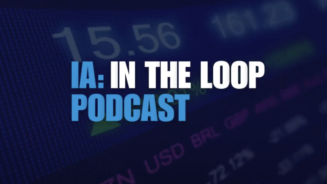Rod, tell me about your new role, what you have added to it and what your patch is going to be now?
I am three months into the new role. Previously, I was responsible for our UK wholesale distribution, so my focus was predominantly on the UK intermediary market, across a number of different client types: banks, wealth managers and the broader IFA market.
The world becomes a smaller and smaller place, so, even in my old role, I was pretty heavily involved in our broader international business – around global distributors – because Barings has good relationships with a key number of global partners.
It has become increasingly important to make sure we are very joined up, in terms of how we are managing those relationships across borders, and across Europe and Asia.
"Outside of the UK, the next biggest market for Barings in terms of current assets would be Germany and then Austria"
A lot of those companies have centralised their fund selection, commercial and even their regulatory and operational structures. So it is important we do likewise when we engage with them.
That is a process I have been significantly involved in during my seven years at Barings. We have identified a number of these global distribution partners, and the way it tends to work is that the head in the country in which that company has their head office leads on that company.
That person then co-ordinates communication across all the different distribution teams within Barings, in Europe and Asia.
Within EMEA, the UK is the largest market for which I am responsible, representing around half of our assets in EMEA. Looking ahead, my mandate covers markets where Barings is currently active, including the UK, France and the Benelux countries (out of Paris), and Germany, from where we also cover Austria. We also cover Luxembourg from our Swiss office.
The final region that falls under my mandate is the Middle East. We have an office in Dubai from where we service a number of wholesale-type distribution partners in the region.
Does your enhanced role signal a significant additional push, as far as Barings is concerned, into those EMEA markets, beyond the UK?
It is not a significant new push because we have historically been active in those markets, but it reflects our continued commitment to those markets and our keenness to continue to develop relationships in them.
What is the relative importance of those different regions?
In simple terms, they are all important. Currently, we are not in all European markets, so we remain fully committed to the ones we have been active in for a number of years. We have been operating a successful and profitable business in those areas.
Outside of the UK, the next biggest market for Barings in terms of current assets would be Germany and then Austria.
Our focus in France, as it is in all the other markets, is on the institutional top-end wholesale buyers of funds. We are not as focused on the broader IFA markets in those countries but France is a market we have been in for many years and we have strong brands and relationships.
Switzerland is a market in which we have operated for a number of years but we made an even bigger commitment there a couple of years ago when we opened an office in Geneva. That represents a growing commitment and investment in developing our client relationships.
Similarly, we opened our office in the Middle East six years ago. Again, that is a newer market for us, and it is one that is developing quite rapidly in terms of the regulatory environment and the client base.
What are the possibilities for the business to grow in the Middle East?
Historically, one of the reasons it made a lot of sense for us to open an office in the Middle East was our strong brand in international expat markets. Barings had built up good exposure via the internationals of the life companies, so we established a presence there in order to service those relationships.
Since then, we have developed our relationships into the broader market, particularly with the global banks that operate in those markets, and also with the local banks and wealth managers.
How is Barings positioning itself with regards to the UK pension reforms, and what are the implications for the international side of the business?
We are looking closely at it. For many years there has been a big market for income generation post-retirement in the UK. A lot of investors have been saving into PEPs and ISAs, often with their money managed by a wealth manager. When those people get to retirement, they might focus that portfolio on a combination of income generation and capital preservation.
With the change to pension regulation, that market is set to get even bigger. It is not just the demographics of an ageing population but a lot more people at retirement will not necessarily just buy an annuity.
We launched a multi-assets fund that is more like a total returns product, which has restrictions on fees, to operate in the auto-enrolment market. It is a more active-passive type structure because, in terms of the overall cost, the more you use underlying active managers within the build-up of those types of portfolios it adds to the cost.
The Dynamic Capital Growth Fund we launched fairly recently is designed for that market, with those price caps, sold via benefit consultants, as a solution for the auto-enrolment market.
What about the international platform space and companies such as Novia Global launching soon into the international market?
There is an opportunity there for new entrants. I was involved in launching Cofunds as the original sales marketing director when that business launched in 2000.
It is a space I know reasonably well there has not been the same development of platforms across Europe that we have seen in the UK.
In terms of the number of platforms available to both IFAs and wealth managers in the UK, the choice seems far broader than in other European markets. That may be something that will change.
There may be scope for platform providers to provide a more bespoke service for wealth managers around Europe. They are trying to address that gap in the market.




